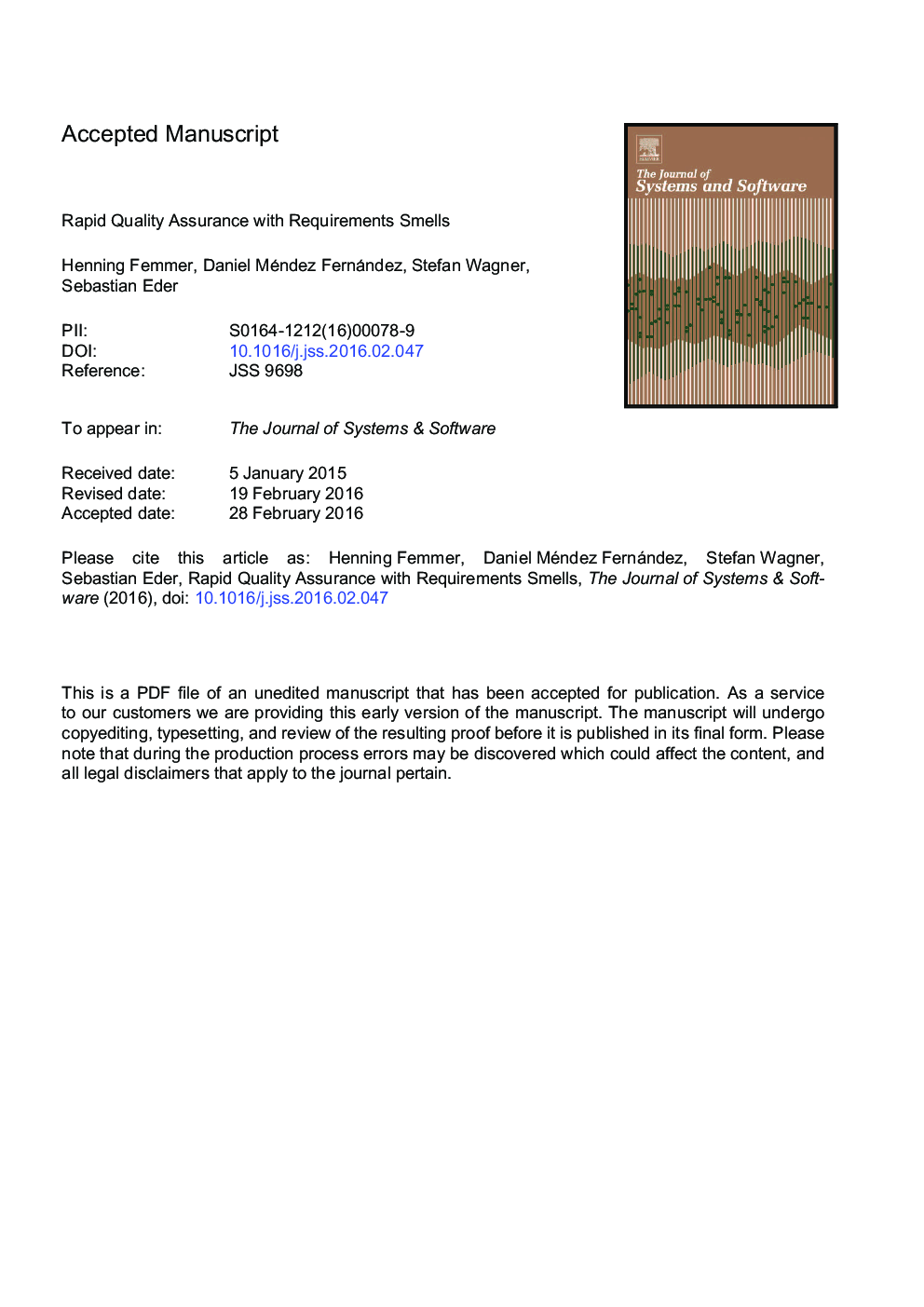| Article ID | Journal | Published Year | Pages | File Type |
|---|---|---|---|---|
| 4956615 | Journal of Systems and Software | 2017 | 75 Pages |
Abstract
Bad requirements quality can cause expensive consequences during the software development lifecycle, especially if iterations are long and feedback comes late. We aim at a light-weight static requirements analysis approach that allows for rapid checks immediately when requirements are written down. We transfer the concept of code smells to requirements engineering as Requirements Smells. To evaluate the benefits and limitations, we define Requirements Smells, realize our concepts for a smell detection in a prototype called Smella and apply Smella in a series of cases provided by three industrial and a university context. The automatic detection yields an average precision of 59% at an average recall of 82% with high variation. The evaluation in practical environments indicates benefits such as an increase of the awareness of quality defects. Yet, some smells were not clearly distinguishable. Lightweight smell detection can uncover many practically relevant requirements defects in a reasonably precise way. Although some smells need to be defined more clearly, smell detection provides a helpful means to support quality assurance in requirements engineering, for instance, as a supplement to reviews.
Keywords
Related Topics
Physical Sciences and Engineering
Computer Science
Computer Networks and Communications
Authors
Henning Femmer, Daniel Méndez Fernández, Stefan Wagner, Sebastian Eder,
